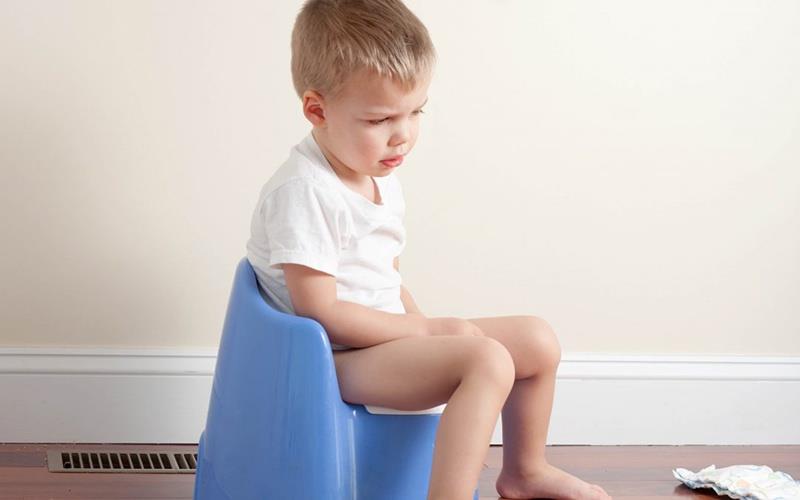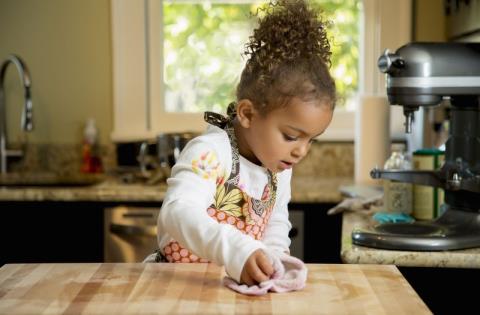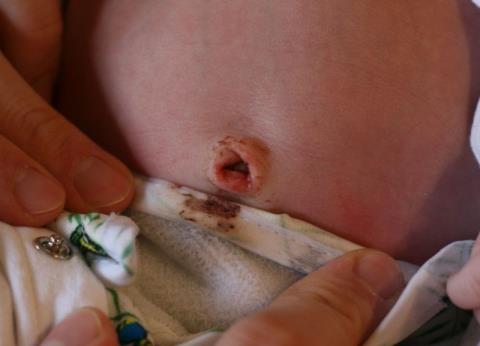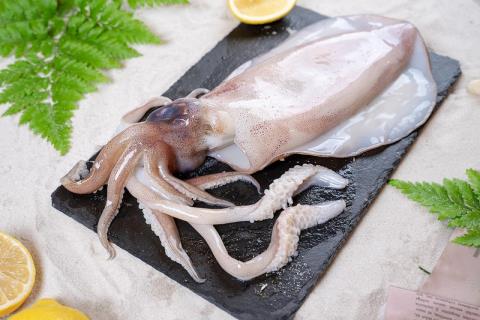Things you need to know when cutting babys nails
Nail clipping for babies seems simple, but not every mother knows how to do it right. See now how to cut nails for babies and take note.

Laughing cow cheese is a product that contains many nutrients that are extremely good for children. However, parents need to know about when children can eat and how to eat cheese correctly so that the product can work at its best.
Laughing cow cheese is a great product made with milk as the main ingredient, has a greasy aroma, so it is loved by many children. However, there are many parents wondering if how many months old laughing cow cheese can be eaten? Let's learn more about this with SignsSymptomsList through the article below.
Nutritional composition of laughing cow cheese
Laughing cow cheese is a food that contains a lot of protein, vitamin D and calcium 100 times higher than meat, helping the process of forming muscles, bones and cells of the body take place smoothly. Cheese also contains good fats and probiotics that help improve the digestive system as well as improve health.
Laughing cow cheese contains many nutritional values that are good for the health of children
More specifically, in 28g cheese will provide 100 calories, 5g good fat, protein, vitamins A, B2, B12, D3, K2, omega 3, ... and other minerals such as zinc, phosphorus, Folic acid, ... However, cheese contains less iron and contains a lot of cholesterol, so parents need to avoid overeating, which will lead to overweight and obesity.
Uses of laughing cow cheese for children
Provides essential nutrients for the baby's body
With the nutritional ingredients found in laughing cow cheese, such as providing calcium, multivitamins for babies, and important minerals for the body. From there, it helps the baby grow quickly, improve the health of the immune system, develop the brain and improve the digestive system effectively.
Help your baby's bones become stronger
Laughing cow cheese contains 6 times more calcium than milk. Therefore, this food will help the baby's skeletal system to grow taller quickly and better. At the same time, the vitamin D content in laughing cow cheese also has the ability to maintain strong bones.
Laughing cow cheese contains high levels of calcium and vitamin D
Protect children's teeth
When children eat laughing cow cheese, the salivary glands on the inside of the mouth will be stimulated, contributing to the removal of leftover food on the surface of the teeth. At the same time, the content of Casine in cheese will better protect tooth enamel and limit tooth decay in children .
How many months old can the laughing cow cheese be eaten?
The problem "How many months old can laughing cow cheese be eaten?" This is a question asked by many parents. To answer the question of how old is the laughing cow cheese, parents should give the baby cheese when the baby is 6 months old. This is the period when the digestive system, nervous system and body of the baby are developing healthy. Therefore, parents should supplement their baby right now is the most suitable because this product will supplement about 70% of the energy needed for young children.
Children 6 months and older can eat laughing cow cheese
Note, parents should carefully observe the reaction of young children when eating cheese, but accompanied by symptoms of indigestion, diarrhea, flatulence , they should stop eating. A few months old baby can eat laughing cow cheese, depending on the age and weight, the amount of cheese given to the baby will also be different. Children aged 7-11 months should eat 12-14g cheese, and children 12-18 months old should eat 14-17g cheese.
Notes when feeding babies with laughing cow cheese
The appropriate amount of cheese for children according to each age
For regular cheese pellets or pieces, parents should use the following:
As for fresh white cheese in cream form, parents should use the following:
When should children eat cheese?
After knowing that laughing cow cheese can be eaten by babies in a few months, parents should pay more attention to when to give cheese to children. Because laughing cow cheese has an abundant amount of protein, vitamins and minerals, it is very suitable for babies to eat in the morning. This food will add enough energy for an active day of your baby.
In addition, parents can also give children cheese in the afternoon when they first wake up to add energy and help the baby not feel hungry.
How to cook salted cheese for babies to eat
For young children who have not eaten well, mothers can stir cheese with flour and porridge to increase the nutritional content, remember to turn off the stove and then add cheese to stir otherwise it will lose nutrients. Some porridge dishes are delicious when combined with cheese such as salmon porridge, pumpkin porridge, egg porridge, potato porridge, ...
In addition, mothers can also blend with some other dishes such as avocado smoothie, banana, ... For older children, who have eaten raw well, mothers can feed them directly with laughing cow cheese. , or make sandwiches, rice rolls, pizza, flan, pan-fried dishes, cakes made from flour,...
Limit feeding your baby too much cheese
If parents give children too much cheese, it will easily lead to constipation or the risk of obesity. Therefore, parents should only feed their children in moderation, and at the same time add fiber in vegetables or nutrients from other foods to ensure the comprehensive development of young children. .
 Parents should not give children too much cheese to avoid constipation
Parents should not give children too much cheese to avoid constipation
The article on SignsSymptomsList has answered readers about the problem of “Can a few months old laughing cow cheese be eaten?” as well as things to keep in mind when feeding this type of food to children. Laughing cow cheese is a product containing many nutritional components, however, parents should know how to feed their children properly to limit bad conditions from happening.
Nail clipping for babies seems simple, but not every mother knows how to do it right. See now how to cut nails for babies and take note.
Laughing cow cheese is a product that contains many nutrients that are extremely good for children. However, parents need to know about when children can eat and how to eat cheese correctly so that the product can work at its best.
In addition to breast milk, the use of external milk has become the solution for the development of children in the period from 0 to 6 months old. Watch now!
Teaching children to be independent is a noble quality, an invaluable "asset" that parents can leave their children. In addition, teaching your child to be independent is a way that you can give your child a "fishing rod" so that he or she can be free to be creative and do the things he loves. From there, I can be brave, strong and confident to walk on my own path in the future.
Many mothers have the same question whether breastfeeding can be dewormed? Moreover, there are also many mothers with signs of stomach worm pain when they have not yet weaned their babies. That raises a lot of concern for mothers because they are worried that the drug will affect their baby.
Bleeding from the umbilical cord of a newborn is usually not a cause for concern. Therefore, when the baby has bleeding in the umbilicus, parents need to calmly find a way to stop the bleeding and clean the baby's umbilical cord properly.
Cleaning the baby's ears is a necessary job, but it should not be abused as well as mastering safe hygiene, avoiding discomfort and pain for the baby.
If you and your wife are planning to have a baby and want to give birth to a boy, but don't know how to do it, follow the following article right away!
Diet for mothers after cesarean section is very important because it affects the recovery of the wound. Can moms give birth by caesarean section eat squid? How much should be eaten? SignsSymptomsList will answer in detail so that moms know how to eat squid after caesarean section properly.




